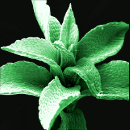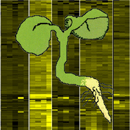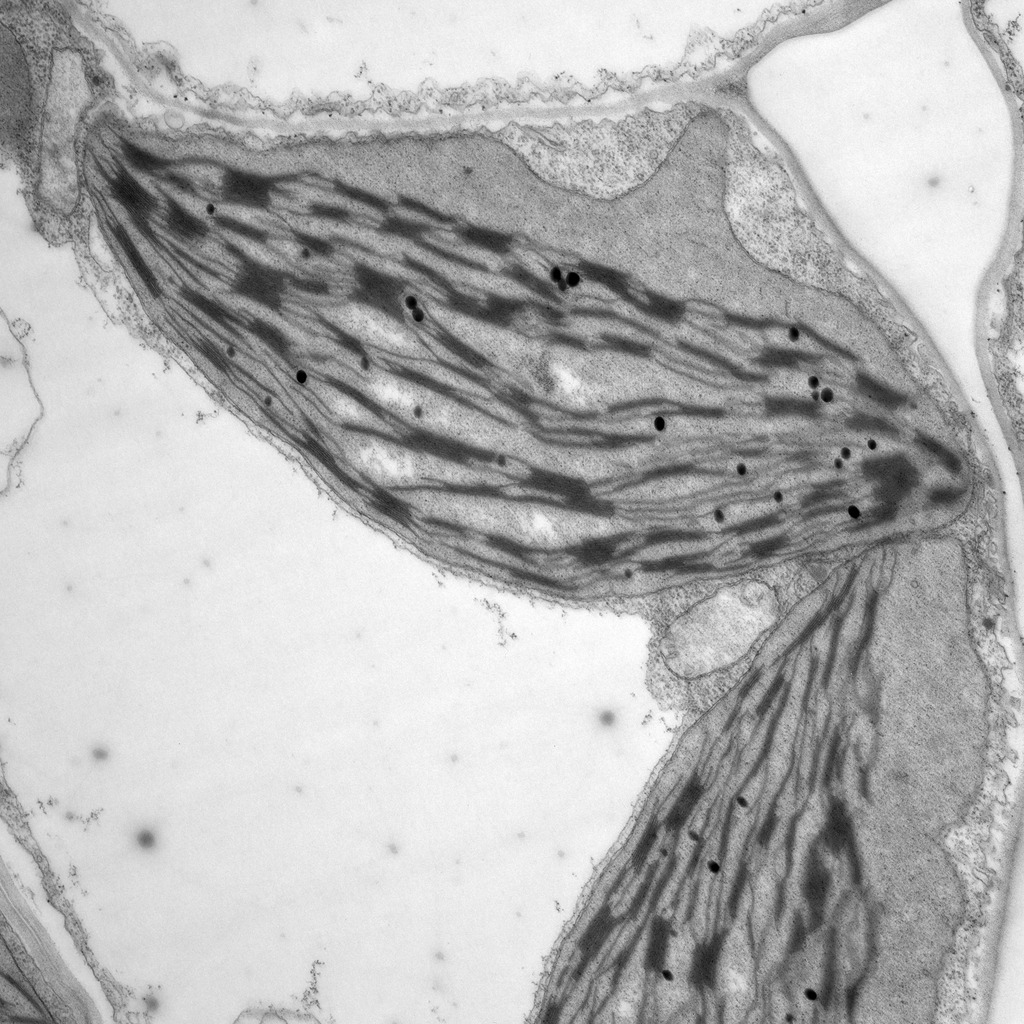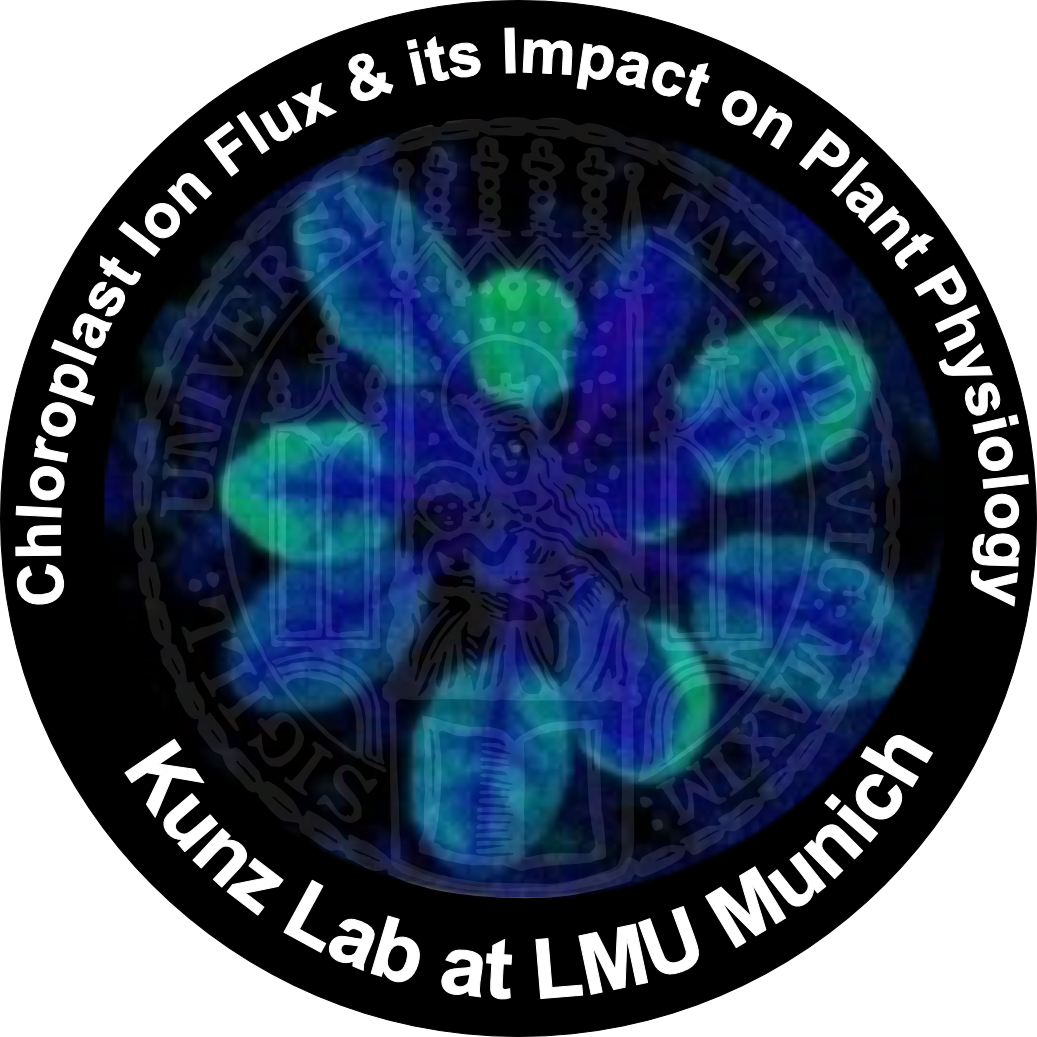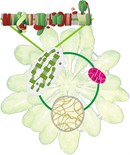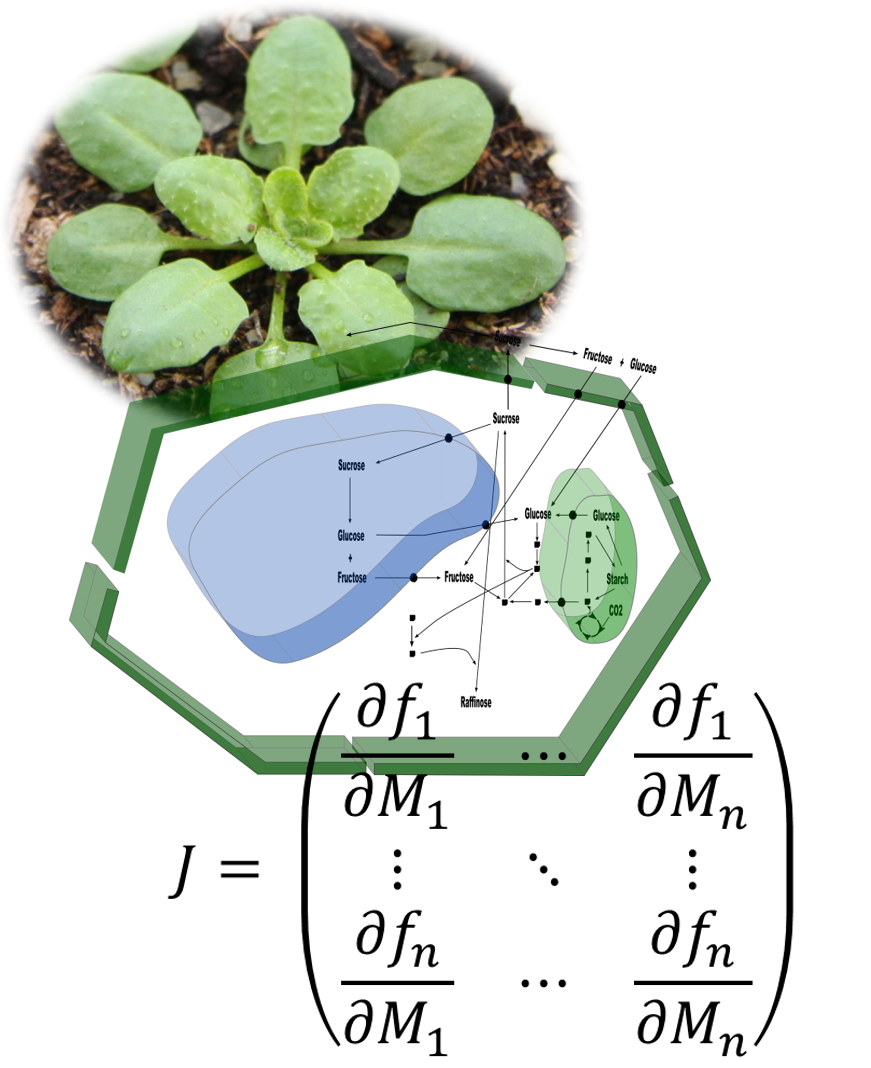Plant cells are characterized by a high degree of compartmentation. Compared to other eukaryotes, plants possess additional compartments and organelles, e.g. chloroplasts where photosynthesis takes place. Our research focuses on the analysis of metabolic regulation and signalling within and between such cellular compartments. In particular, we are interested in resolving molecular strategies of plants to acclimate their compartments to fluctuating environmental factors, e.g. light or temperature. Such factors shape range boundaries of plant species and, hence, have a significant effect on plant evolution, development and ecology. Experimental approaches comprise measurement of rates of photosynthesis and respiration, enzyme activities and the subcellular proteome and metabolome. Mathematical modelling of metabolism allows us to computationally analyse the role of complex metabolic regulation in plant-environment interactions.
more


